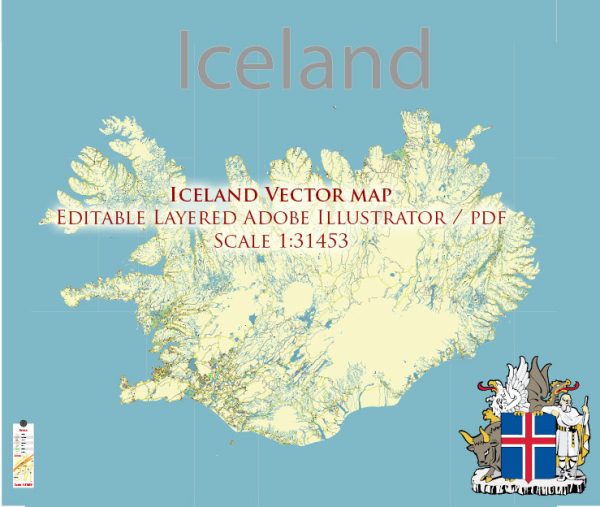Iceland is a unique Nordic island nation located in the North Atlantic Ocean. Here is a socio-economic description of Iceland:
- Economy:
- Iceland has a mixed economy with a combination of free-market activity and extensive government involvement.
- Key industries include fishing, renewable energy, tourism, and aluminum production.
- The country’s small population and abundant natural resources have helped maintain a high standard of living.
- GDP and Income:
- Iceland’s GDP per capita is relatively high, making it one of the wealthiest nations in the world.
- The income distribution is relatively equal compared to many other developed nations.
- Employment:
- The labor force in Iceland is highly educated, and the unemployment rate is typically low.
- Key sectors for employment include services, tourism, and various forms of creative and technical work.
- Social Welfare:
- Iceland has a well-developed welfare system that provides a comprehensive range of services to its citizens, including healthcare and education.
- Social programs are funded through high taxes and government revenue from natural resources like hydropower and geothermal energy.
- Healthcare:
- Iceland has a universal healthcare system that provides access to medical care for all residents.
- Healthcare quality is high, and life expectancy in Iceland is among the highest in the world.
- Education:
- Iceland has a strong and well-funded educational system, which includes free public education up to the university level.
- Literacy rates are close to 100%.
- Infrastructure:
- Iceland is known for its advanced infrastructure, particularly in the fields of renewable energy and transportation.
- The country utilizes abundant geothermal and hydropower resources for electricity and heating.
- Environment:
- Iceland places a strong emphasis on environmental conservation and sustainability. The country is a leader in utilizing renewable energy sources, like geothermal and hydroelectric power, which reduce its carbon footprint.
- Tourism:
- Tourism plays a significant role in Iceland’s economy. The country is known for its stunning natural landscapes, including geysers, waterfalls, glaciers, and volcanoes.
- Political System:
- Iceland is a parliamentary democracy with a president as the head of state and a prime minister as the head of government.
- It has a multi-party system, with a strong tradition of social and political stability.
- Cultural Diversity:
- Iceland is relatively homogenous, with a population primarily of Icelandic descent.
- The country is known for its rich cultural heritage, including the preservation of the Icelandic language and sagas.
- Challenges:
- Despite its prosperity, Iceland faces challenges related to economic fluctuations, particularly in its financial sector.
- The country is also vulnerable to environmental issues such as volcanic eruptions and earthquakes due to its location on the Mid-Atlantic Ridge.


 Author: Kirill Shrayber, Ph.D. FRGS
Author: Kirill Shrayber, Ph.D. FRGS